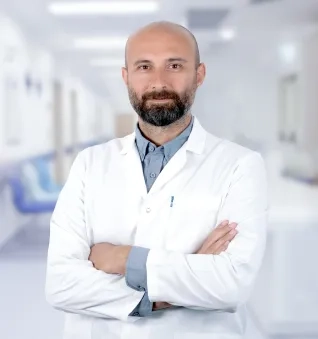Alo Yeditepe
Alo Yeditepe
How Should Patients Receiving Chemotherapy Eat?
First of all, there are very few foods that are absolutely prohibited, except for compliance with hygienic conditions. For example, grapefruit and nettle or various herbs and herbal juices/teas with unknown ingredients should be avoided due to the possibility that they may interact with chemotherapy drugs and impair their effect. Unnecessary nutritional products should not be used It should not be forgotten that if a balanced and adequate diet is maintained, there is no need for extra nutritional products or vitamin and mineral supplements. In addition, scientific studies have proven that some antioxidant and vitamin-mineral drugs can be harmful while receiving chemotherapy. However, in cases where nutrition is impaired, if the need for additional nutritional products comes to the fore, the patient should definitely discuss this issue with his/her doctor. Patients should never use any nutritional supplement or herbal treatment without the knowledge of their physician.
Nutrition During Chemotherapy
The benefits of eating a good and balanced diet during treatment include:
- It makes you feel better about yourself,
- It allows you to maintain your strength and energy level,
- It helps you maintain your weight and your body's nutrient stores,
- It allows you to better tolerate treatment-related side effects,
- Reduces the chance of infection,
- It will help you to recover as soon as possible.
Good nutrition is based on an adequate and balanced intake of vitamins, minerals, proteins and other nutrients that help the body to function normally. Your diet should include enough calories to keep weight off and high-protein foods to regenerate your skin, hair and other organs. Proteins are involved in the regeneration of tissues damaged during treatment. However, if you do not have enough calories in your diet, your body will use the protein for energy and there will not be enough protein to regenerate damaged tissues.
The main food groups are;
Proteins:
Essential for the regeneration of body tissues, growth and your immune system. Protein needs increase during illness. The most important sources of protein are meat, fish, eggs, milk and dairy products, dried beans, chickpeas, peas, lentils and soy.
Carbohydrates and Fats:
They are the body's main sources of energy. The calorie requirement of an individual varies according to age and activity level. Carbohydrate sources are fruits, vegetables, bread, cakes, wheat and cereals. Fat sources are butter, margarine, nuts, natural fats from meat, fish and chicken.
Vitamins and Minerals:
Essential for growth, development and utilization of energy from food. If you are eating foods that contain the protein and calories you need daily, your vitamin and mineral requirements are being met. However, if your diet is inadequate for various reasons during treatment, your doctor will recommend you to use vitamin and mineral supplements. Do not use vitamins without your doctor's approval. Some vitamins may have the effect of decreasing or increasing the effect of chemotherapy.
Water and Fluids:
You need to drink at least 8-10 glasses of fluid a day to maintain your body's normal functions. However, you should try to take more fluids during chemotherapy. If you have treatment-induced vomiting or diarrhea and are not getting enough fluids, you may become dehydrated (low in the fluids and electrolytes your body needs). You can ask your doctor or nurse how much fluid you need to drink to prevent dehydration. In addition to water, you can also get your daily fluid intake from liquids such as fruit juices, tea, cola, soup, buttermilk, yogurt. Nutritional requirements vary from person to person. During treatment, your doctor, nurse and dietitian will work in cooperation to determine and meet your nutritional needs. Side effects such as loss of appetite, nausea and vomiting, loss or change in taste, mouth sores, indigestion, gas, diarrhea or constipation may adversely affect your diet. You should tell your doctor or nurse if these side effects occur. Some suggestions such as medication, dietary changes or nutritional supplements may help to control these side effects.
Do I need to change my daily life during chemotherapy?
It has already been explained that some drug-related side effects may occur when you are undergoing chemotherapy. Even if you experience side effects due to the drugs, you can continue your normal life by taking measures to control these side effects. However, in some cases you may need to make changes in your life. For example, if your white blood cells are low, you will be asked to wear a mask.
If your hemoglobin drops, you may feel weak and you may have to limit your daily activities. In addition, some precautions you can take in your daily life will make your treatment period more comfortable. Some of these measures are as follows:
- Try to stay away from people who have a flu infection or contagious disease. Avoid close contact such as hugging and kissing as much as possible.
- Stay away from stuffy, dusty, crowded places with cigarette smoke. Make sure the room you live in is airy.
- Try not to keep flowers in vases as germs can grow quickly in stagnant water.
- Do not hesitate to talk to people with whom you can share your feelings and visit friends. This will distract you from the feeling of loneliness.
- If possible, take a vacation in consultation with your doctor.
- Quit smoking if you smoke.
- Unless fluid restriction is recommended by your doctor for any reason, drink at least three liters of water and liquid foods (soup, yogurt, custard, buttermilk, milk, compote, etc.). In the summer months, this amount should be four to five liters as the body will lose fluid through sweating. You should take at least one liter of these liquid foods as water. A normal-sized glass of water is equivalent to approximately 200 milliliters and 5 glasses of water is equivalent to one liter of water.
- Try to eat little and often, 5-6 meals a day.
- Always wash fruits and vegetables thoroughly. Do not eat raw fruits and vegetables when your white blood cell count is low.
- Do not eat ready-to-eat food that you doubt is clean and fresh. If you eat out, make sure it is safe and clean.
- Always wash your hands with soap and warn people who live with you about hand washing. Take a bath at least twice a week.
- If you go to the hairdresser, take your shampoo and comb with you and do not have a manicure or pedicure.
- Take care not to use a razor when shaving. If possible, use an electric shaver.
- Make sure that the clothes you wear are made of non-squeezing, comfortable, loose and non-sweating fabric. Do not go out during the hours when the sun is high. If necessary, wear long-sleeved clothing, use a hat or umbrella, and apply sunscreens with high protection factors that protect you from the harmful effects of sunlight.
- Learn the normal value of your body temperature (36-37°C) and how to use a thermometer. Tell your doctor or nurse if your temperature rises (38°C or above). In patients receiving chemotherapy, fever may be the first sign of a life-threatening condition. Call your doctor immediately and go to the nearest health facility. In this case, your blood count will be taken and if your neutrophil count is below 500/mm3 , various cultures will be taken and intravenous antibiotic treatment will be started.
- Avoid strenuous and exhausting activities. However, keep in mind that constant bed rest will do more harm than good.
- Take regular walks and do light exercise (unless your platelet count is low). Rest when you feel weak.
EMERGENCY SITUATIONS
Situations where you should come to the hospital without waiting for a doctor's appointment:
Fever of 38 degrees and above,
New onset of shortness of breath or sudden increase in existing shortness of breath, stabbing chest pain,
Bleeding in any of your body parts, large bruises on the body (without trauma)
Pain or tightness in the chest,
Impaired consciousness / inability to be awakened.
This content was prepared by Yeditepe University Hospitals Medical Editorial Board.
”
See Also
- What is Chemotherapy? How is it Applied?
- Is Cancer a Treatable Disease?
- Nutrition in Cancer
- Cancer Treatment Methods
- Treatments that Reduce Life Loss in Cancer Give Hope!
- Do Individualized Treatments Offer Hope for Cancer?
- The Hope of ‘Immunotherapy’ in Advanced-Stage Cancer Treatment
- Cancer Statistics Reveal the Importance of Protecting Against Cancer
- New Research Points to the Important Issues in Breast Cancer
- Found Out That She Had Cancer After Her Accident, and Immunotherapy Was Her Solution!
- Life Support Booklet for Oncology Patients
- False Facts in Cancer
- Lung Cancer
- Most Common Cancers
- Common Misconceptions About Cancer
- New Treatment Approaches Promising in Metastatic Breast Cancer
Alo Yeditepe




